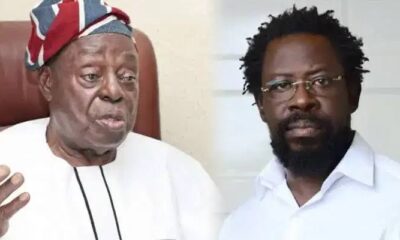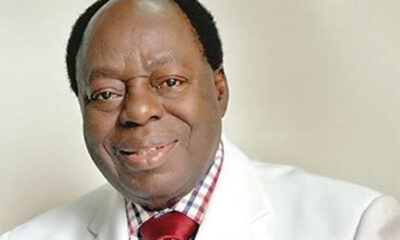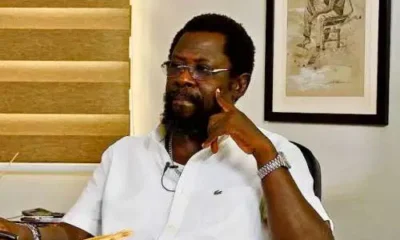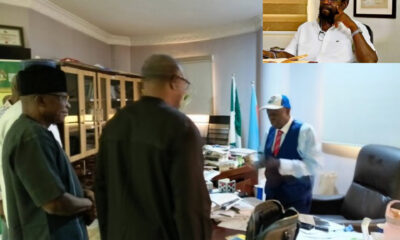Opinion
Democracy and the people’s role (9): Afe Babalola
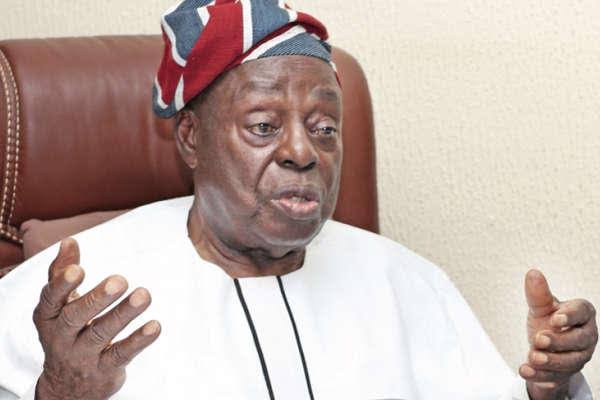
With the recent happenings in the country especially agitation for a new constitution, should it be concluded that democracy is under threat? I do not think so at all.
First, democracy, like a seed, when planted must be allowed to germinate. For it to blossom to maturity and produce bountiful fruits, it must be nurtured, watered, weeded and pruned. In other words, a degree of sacrifice is needed. Like a plant, the farmer must be prepared to see that only unwanted weeds are not allowed to stay if indeed he expects bountiful harvest at the end of the season. Thus impeachments, suspensions, wrangling among members of political parties, litigation, including election petitions, are all part and parcel of the democratic process.
The truth is, Nigeria is still at the formative stage; we are still experimenting. It takes the collective will of all stakeholders to weather the storm before arriving at the Promised Land.
Second, all the advanced democracies of the world, without exception, have passed through this stage before. The route may differ slightly but the experience still remains the same.
In other words, there must be disagreement first before agreement, especially in politics. However, it takes endurance, perseverance and, above all, the collective determination and will of the people to perfect the imperfections over a period of time. Rome, they say, was not built in a day.
Third, in spite of the seemingly discordant tunes being played out by political gladiators across the length and breadth of Nigeria, the cheery news still lies in the fact that Nigerians are unanimous in saying ‘No’ to any form of intrusion by certain forces. Having trodden that path in the not too distant past, we have all realised that it is far better and profitable to allow mistakes to be made and corrected over a period of time than clamour for the familiar “rescue operation” by people in uniform. We have enough experience at our disposal that should serve as “caution” against any such clamour. Other great nations of the world had passed through this route before and they survived it before finally stabilising to become the models they are today. The political evolution being experienced by Nigeria should be allowed to complete the cycle.
The people’s role and the way out
A glimpse at the political history of Nigeria reveals that the people have not been complacent nor docile afterall. At every stage, there has always been a response and or reaction. Certain areas where, to me, the people have so far been shirking in their responsibility are:
*Ensuring the continuity of democratic dispensation in its unadulterated form.
*Lackadaisical attitude towards the principles of checks and balances.
*Promotion of local militia, for example: Odua Peoples Congress, OPC; Bakassi Boys; Igbo People’s Congress, IPC; Arewa Peoples Congress, AFC.
*Connivance with anti-democratic elements to sabotage public utilities and or structures like NEPA(PHCN) installations; oil pipelines, government properties.
*Aiding and or abetting corruption.
*Tacit encouragement of looting of the treasury by glorifying ill-gotten wealth, award of questionable chieftaincy titles, promotion of mediocrity at the expense of merit.
The list is not exhaustive.
The salient problems of Nigeria’s democracy and the way out
To solve a problem, one must first be able to identify it and dissect it. Aside from the general problems that plague democracy all over the world, with special reference to Nigeria, the following are peculiar and recurring:
Over centralisation of power at the centre
There is no doubting the fact that power is over concentrated at the centre – at the expense of the “federating units”. This peculiar federalism has in turn, rendered the units almost powerless and mere appendages of the center otherwise called Federal Government. The truth is, we have more unitarism masquerading as federalism. Because of over centralisation of power and the attractiveness of the centre, everyone wants to be at the centre not necessarily to serve but to loot or, to borrow the popular cliché, “share the national cake”. Why must one borrow money, sell one’s property in order to serve others? The centre must, therefore, be made unattractive by de-emphasizing over concentration.
Immunity Clause
I have written many articles on immunity clause. I insist that Nigeria’s experience under this dispensation has left a foul taste in the mouth. The best thing is to expunge this provision from our Constitution once and for all through the instrumentality of amendment.
Mass political illiteracy and endemic poverty
The whole concept of democracy revolves round the people. Put in another form, it is the masses that give democracy meaning. It is a great irony since 1946 – Richards Constitution, the electorate is still bedeviled with mass illiteracy. Closely accompanying this is mass poverty. Little wonder then that greedy politicians capitalise on this, buy their votes by flaunting ill-gotten wealth right on their face. The result has always been that brigands, nonentities and people of questionable pedigree continue to dominate our political landscape.
In the old Greek city states, democracy was practical by making it open. Only a very small fraction of people put themselves up and “election” was done right in the open. There was nothing like rigging and or electoral fraud. The result was that winners had always been credible people who were responsible and available.
To solve this problem therefore, illiteracy and mass poverty should be tackled head-on by investing huge sums in eradicating illiteracy and poverty.
Population
Politics, the world over, is a game of numbers. Nigeria’s population, presently, is conservatively put at around 200 million people. This number is unevenly spread. With over 250 ethnic groups spread over thousands of kilometres with a sizeable number in the very remote part of Nigeria, accessibility becomes a serious problem. This, in turn, makes participatory democracy a very Herculean task. Opportunists parading themselves as politicians capitalise on this with active connivance of electoral officials to manipulate figures without even reaching many people, especially in the remote areas.
Government should therefore evolve a strategy whereby every nook and cranny of this country is easily accessible.
Electoral violence and thuggery
As if by jinx, electoral violence and thuggery have almost permanently become a recurring decimal in the annals of electoral system in Nigeria. The collapse of the First Republic had its tap root in the large scale fraud and violence that attended the conduct of the 1964 general elections and the 1965 Western Regional Elections. The thuggery and violence effectively provided the launch pad for the army to strike for the first time in January 1966. Virtually the same script was replayed in 1983 that finally extinguished the Second Republic.
For us to sustain democracy, therefore, it behoves each and everyone of us to be vigilant, genuinely involved and do everything humanly possible to assist the law-enforcement agents to nip any impending violence in the bud.


